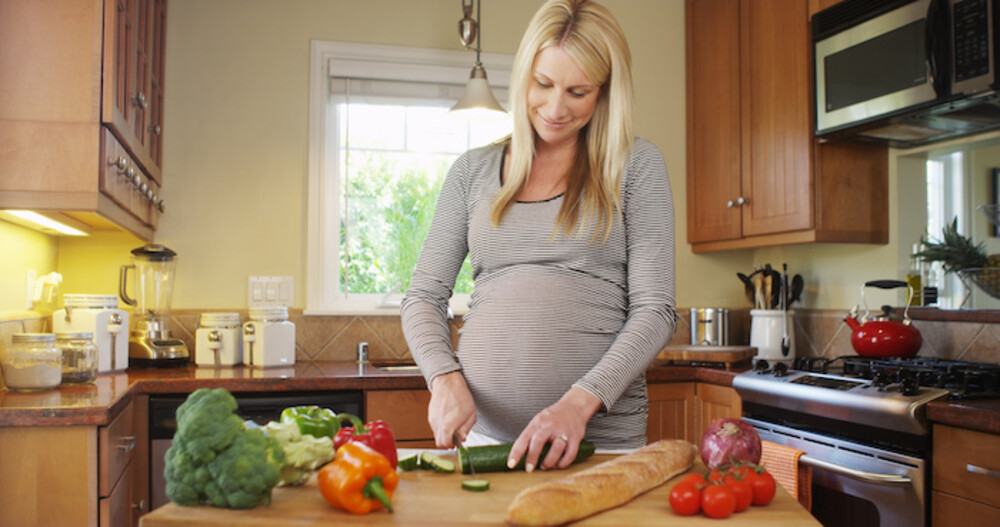
There are two keys to living a healthy life: eating the right food, and maintaining a balanced fitness plan. For a surrogate mothercarrying a child, these keys are even more important than they are for most people.
A developing child is particularly sensitive to any environmental factors which affect their mother, including her nutritional choices. As a surrogate, you need to ensure that the life you are bringing into this world gets everything that they need to grow and develop. You also need to distance your child from any substances which, while not necessarily harmful to a grown adult, could be dangerous to a growing fetus. Such substances might include chemicals commonly found in certain types of seafood, as well as commonly used pesticides and preservatives.
Eat Organic Produce
Organic foods are a popular (but expensive) option for many health-conscious people in today’s society.
In order to be certified as organic, fruits and vegetables must be produced without synthetic pesticides or fertilizers. For meat, dairy, and poultry products to be certified organic: they must be free of antibiotics, growth hormones, and other animal products.
While there are no known health benefits for developing children eating organic food, food produced using pesticides and similar chemicals have not been tested for their effects on children. The only conclusive study showed that eating organic significantly reduces the pesticide load in an infant.
Where is buying organic most important? Grapes, berries, most varieties of squash, beans, and tree fruit such as apples and peaches are the most likely non-organic fruits and vegetables to have been exposed to high amounts of pesticide, so focus your organic purchases in these areas. If buying organic is not an option, rinse your produce thoroughly before preparing it.
Other important areas for organic purchases include whole grain foods – including popcorn, which comes as a pleasant surprise to many people. Whole grains are full of vital nutrients, including vitamin E and selenium, and are one of many rich sources of fiber.
On The Subject of Seafood
Mercury is a serious concern when consuming seafood while pregnant. Mercury is extremely damaging to the nervous system of a developing baby. Compared to many other types of fish, however, salmon is classically low in methylmercury levels, and leading health authorities agree that the consumption of low-mercury fish and other seafood offers profound benefits that far outweigh any potential risks.
The FDA has suggested a limit of 12 ounces of salmon per week for expectant mothers. This is because of two vital substances salmon provides in abundance: omega-3 fats, and protein. It is a virtually unrivaled source of either as part of a natural diet for a pregnant woman. Wild-caught salmon, while more expensive, is suggested as the most nutritious and low-risk alternative.
Don’t Neglect YOUR Health Needs!
Looking after your baby also means looking after yourself. Certain fats and fibers are can be beneficial to expectant mothers. Nuts are a characteristically healthy part of any diet, though they can be taken to excess. Walnuts in particular, however, are a good source of plant-based Omega-3 fats, which is something that you and your baby both need plenty of, and of fiber, which can be extremely helpful to expectant mothers directly.
Fiber reduces the likelihood of potential short-term complications, such as constipation, which might arise from the fact that pregnancy slows down your gastrointestinal system. Walnuts are high in these substances, and can be conveniently carried with you, as well as sprinkled on top of other healthy foods for additional flavor. They don’t offer sufficient Omega-3s to meet your growing baby’s demands as a sole source thereof, but they make for a very handy supplement.
Of all the vegetable types, beans contain the most protein and fiber. Because they are often heavily sprayed with pesticides, they are one of the best areas of focus for organic purchases, but as such they can be extraordinarily helpful. There are many specialty purveyors of organic beans and legumes online, although a local health food store (or even the health food aisle of your regular supermarket) is likely to be much more affordable.
Healthy Supplementation
There are specialized, prenatal vitamin supplements available today which come highly recommended by the medical profession. While it must be understood that these are no replacement for a balanced and healthy diet, they can help to keep unintentionally neglected nutritional requirements on a level. Coupled with a nutritionally sound diet, the right prenatal vitamin supplement may provide you with a harmless excess in certain areas, which your body will pass naturally, while making sure that you get everything you need to allow for your health – and the healthy development of the child you are carrying.
While following a healthy diet recommended for someone who is pregnant, you should look for a prenatal vitamin offering the following assortment as a one-a-day supplementation:
- 400 micrograms (mcg) of folic acid.
- 400 IU of vitamin D.
- 200 to 300 milligrams (mg) of calcium.
- 70 mg of vitamin C.
- 3 mg of thiamine.
- 2 mg of riboflavin.
- 20 mg of niacin.
- 6 mcg of vitamin B12.
It is strongly recommended that you consult with your doctor for your particular needs, as these are likely to vary somewhat from the general guideline presented above.